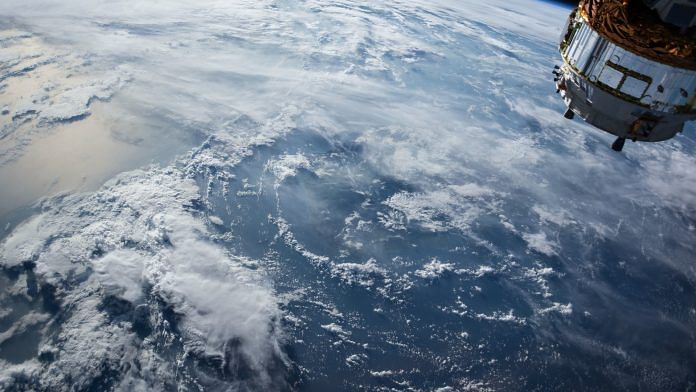
Thank you dear subscribers, we are overwhelmed with your response.
Your Turn is a unique section from ThePrint featuring points of view from its subscribers. If you are a subscriber, have a point of view, please send it to us. If not, do subscribe here: https://theprint.in/
If one was to ask the everyman what is the single biggest threat to India’s national security, proxy wars by neighbours or terrorism would be the answer.
They are emotive issues that elicit a fear of devastation and violence, and a feeling of urgency and common purpose.
However, that is not the only threat to Indian wellbeing, and certainly not the largest imminent assault on our lives. That indictment can only lay at the feet of climate change.
Ecological degradation. Yes, it sounds boring, overwrought in its mundanity, dry and dreary, it is theoretical drudgery. One cannot visualise a stirring speech about depleting water-levels and deforestation, and no rousing rhetoric will lend any excitement to the desertification of Indian lands.
Perhaps real stories stand a better chance. Sisters Imrat Namdev and Pushpa Namdev were neighbours in the Chhatarpur district. They had a row and Pushpa beat Imrat to an inch of her life with a stick. The injured sister was rushed to the hospital but could not be saved. Pushpa was charged with murder. The row was over water.
Imrat’s son explained “Our village faces a severe shortage of potable water…Pushpa always felt my mother drew more water from the well.” Shuriah Niazi and the Thomson Reuters Foundation reported this story when covering the water crisis in May of 2016 from Chhatarpur, a drought-hit Indian region in Bundelkhand.
We are unable to express human suffering through data. The Drought Early Warning System of India has reported 14 of the 28 States and 8 Union Territories declare a ‘Severely Dry Drought’ every year, which does not include other States which declare lesser degrees of drought anyway. Yet, the fates of Imrat and Pushpa and their tale of stark desperation would mean more to us.
Another instance of this is the swelling Adyar River flooding the suburb of Ekkaduthangal during the devastating Chennai floods of 2015. The Indian Express reported that Lt. Col G. Venkatesan and his wife Geetha struggled for nine hours against the water in their first-floor house in Ekkaduthangal. The septuagenarians phoned their daughter but the line was lost. The neighbours heard their cries helplessly until their voices ceased to be heard. We could not protect a war hero and his family from the floods.
Shooting statistics at people and finger-wagging has not helped. Our indifference is disgraceful, and poses a problem. When debating, one is always cautioned to argue with data and steer clear of anecdotes, to present rational arguments, not evocative ones. Clearly, those principles must be inversed. The truth is, anecdotes are pregnant with emotion.
The floods in Chennai, Assam, Bengal, and Jammu & Kashmir or the smog crisis in Delhi, or the drought in Maharashtra and Kerala are upsetting disasters. They are also stories of everyday Indians who stood alone and stood tall to weather the proverbial and literal storms that came their way. No statistics can express that visceral reality, but stories can.
The pandemic has been a theatre of apathy and inadequacy for India, and yet it has also been a spark of solidarity, real global togetherness. Our predicament today is different only in that the year-long ordeal and isolation we are witnessing will be a generation long penitentiary in case of the climate crisis.
The virus is only a glimpse into what worldwide generational ecological disaster can do and the macabre illness, pain and death that will follow. Our environmental failure will cost us in disease, economic loss, food and water shortages, and human lives. The Indian struggle to set foot into a progressive sustainable future begins with such accounts of turmoil and adversity. Only stories of human suffering can help us empathise.
The climate crisis is now an emergency, it is an emotive and provocative issue and it is time we report the human adversity and channel that fear and suffering to change policy and individual behaviour. It is time we let free our raw human anguish.
Comedian George Carlin would irreverently quip “The planet isn’t going anywhere, we are…we will be long gone, just another failed mutation, an evolutionary cul-de-sac. The climate crisis is foremost a humanitarian crisis, let us finally give it a human face.
These pieces are being published as they have been received – they have not been edited/fact-checked by ThePrint.

COMMENTS